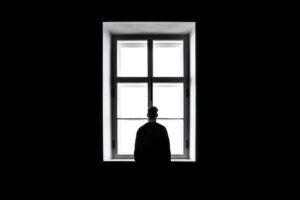“I’m sorry to interrupt,” the McDonald’s employee said politely approaching our table, “but is there anyone here that knows first aid? There’s a child choking outside.”
I had just finished a 16 hour day, and I’m sorry to confess, by the 11th or 12th hour my patience had worn thin. Every time my pager vibrated, or my phone rang, it seemed to be something unusual or difficult or complicated. Questions about a patient at another hospital… patients being transferred from another hospital… scheduling problems, staffing problems, relationship problems, family members with lots of questions, paired with haggard eyes enduring the untold stress and strain of a loved one not taking care of themselves, only to find themselves back in the hospital again.
I was parched from tearing around the hospital and I was dreaming of a McDonald’s ice cream cone. Marnell graciously agreed to meet there, even though he doesn’t share my affection for McDonald’s cones. I didn’t have to work the next day, and anyway Marnell was with his brother Norrell, who I had never met before. I wanted to meet Norrell, and I also wanted to meet Marnell because I hadn’t seen him for 48 hours.
There’s something about the unexpected that reminds us that life is fragile. As I bolted after the McDonald’s worker, I thought of all the first aid classes I had been forced to sit through during my years in healthcare. They’re so repetitive, so boring, each the same as the one before, a few forced hours of confinement in a square white class room sitting by a squarish white folding table sneaking in bites of yogurt since I didn’t get up in time to eat breakfast before I came.
But now, in the 100 yards between our table and the child in the parking lot, those classes increased in value. Not only that, but the frequency with which I had been forced to do them seemed exceedingly appropriate, because even with all of the repetition, I was still scrambling.
By the time I arrived, the child was still in distress, but was breathing on her own despite having swallowed a sharp metal object. We stayed for moral support until EMS arrived, and then backed away.
It happens almost every day at the hospital, that the fire alarm sounds. Every fire door in the building instantly loses its magnetic attraction to the wall, and clangs shut across the hallway. Until the Code Red is cleared, we are forced to push through a maze of closed doors as we rush around the building.
Every so often, one of the maintenance men invades the critical care area at 5am, clipboard in hand.
“Just a little quiz,” he says. “What is our plan if there was a fire?” He’s a nice guy so he lets us cheat by looking at the acronym on the back of his clipboard: RACE. Rescue. Alarm. Contain. Extinguish (or Evacuate). But just the fact that he walks through reminds us to think about our plan.
“How would you rescue someone if there were a fire?” he asks us, making sure we know that we need to separate patients from the fire by two sets of fire doors.
I was driving by the apartments where my geraniums are the other day, when I saw that the second apartment was swarmed with police cars, and two policemen were mounting the entrance steps, guns extended. I called one of my friends who live there. I asked if everything was okay. He was in his room watching TV, unaware.
“Oh, well, it’s the first of the month,” he said. “They’re probably just evicting someone.”
The last time the fire doors slammed shut in the hospital, I thought about how carefully organizations protect themselves from physical disasters: fires, violence, accidents. Hours and hours are spent training people to respond. Magnets are built into the doors, so that if there would be a fire anywhere, it would instantly be insulated from other areas of the hospital. Policemen have a protocol where if one of them is entering with a gun, others arrive on backup. Employees like myself are forced to attend training year after year to be equipped for the unexpected.
Only when that training becomes necessary, does its true value become evident. Even though we might not remember everything we’ve learned in a moment of crisis, if we had no training we would be lost completely.
Wouldn’t it be wonderful if everyone cared for their soul with the same diligence? If we had built-in magnet doors in our hearts that would slam shut whenever we sensed a spark of anger or impatience or malice or distrust?
Perhaps on that 16 hour day, when I lost my patience multiple times, if I had simply taken the time to rescue, alarm, contain, and extinguish my anger on the first insult, I would have protected myself from the next things to come rather than watched my patience go up in flames for the last four hours of the day.
I know that the Bible says, “Trust in the Lord with all your heart,” or “For God has not given us a spirit of fear, but of power and love”. I don’t always remember them. But they are still there within my reach, because of the emergency trainers (parents, teachers, pastors) of the soul who made me memorize, who told me to read my Bible every day, who taught me inspirational songs.
In those moments when the weather strikes, they give us the strength to stand strong.






1 thought on “Emergency Training”
Well put. Thank you for sharing.